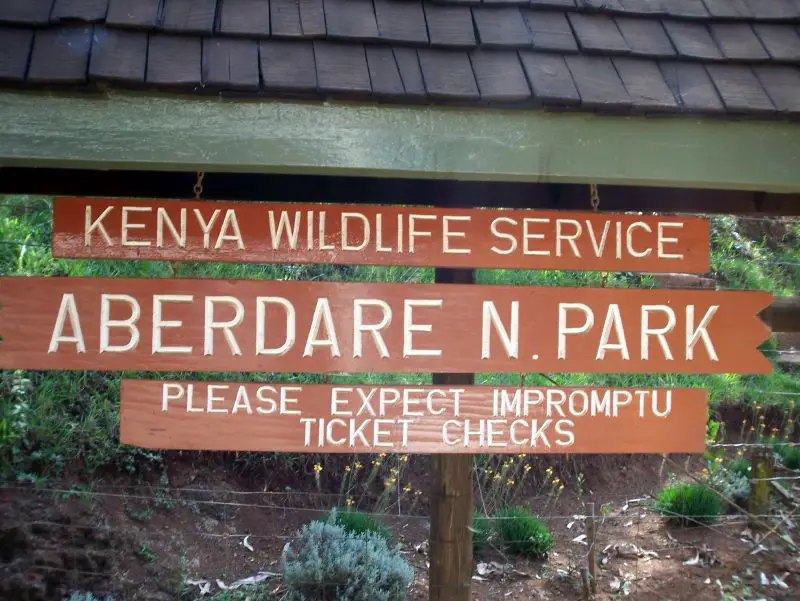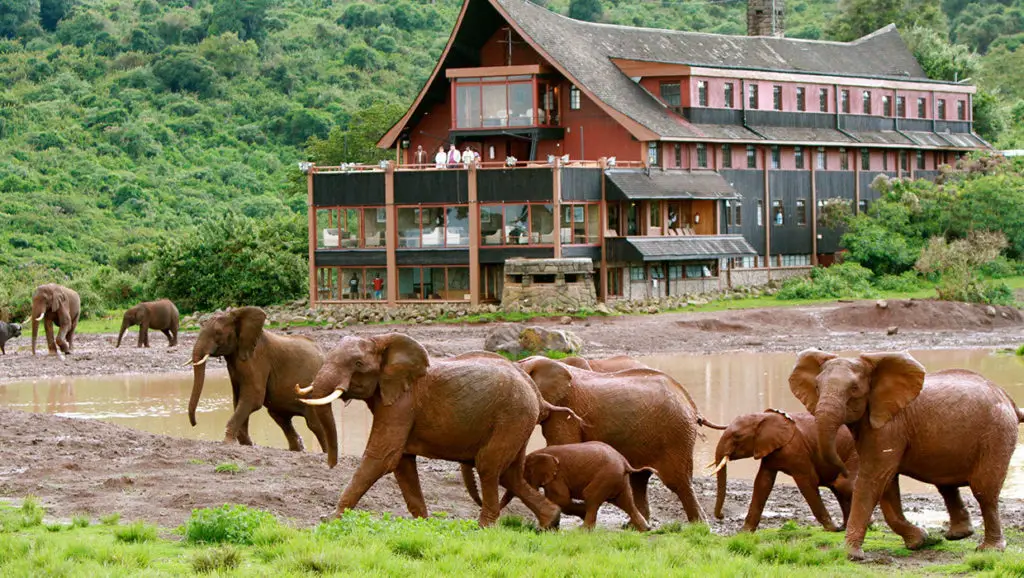Nairobi, the capital city of Kenya, is a vibrant and diverse destination that serves as the gateway to East African tourism.
Known as the “Green City in the Sun,” Nairobi offers a unique blend of urban experiences, wildlife encounters, cultural attractions, and modern amenities.
As a major hub for international travel in the region, Nairobi attracts millions of visitors annually, contributing significantly to Kenya’s tourism sector and overall economy.
What are the main tourist attractions in Nairobi?
Nairobi boasts a variety of attractions catering to different interests:
- Nairobi National Park
- David Sheldrick Wildlife Trust (Elephant Orphanage)
- Giraffe Centre
- Bomas of Kenya
- Nairobi National Museum
- Karen Blixen Museum
- Ngong Hills
- Uhuru Gardens Memorial Park
- Karura Forest
- Nairobi Gallery
How significant is tourism to Nairobi’s economy?
Tourism plays a crucial role in Nairobi’s economy:
- Contributes approximately 10% to Kenya’s GDP
- Major source of foreign exchange earnings
- Supports thousands of jobs in hospitality, transport, and related sectors
- Drives infrastructure development and urban improvements
- Attracts international investments in the hospitality industry
What types of accommodations are available for tourists in Nairobi?
Nairobi offers a wide range of accommodation options:
- Luxury hotels (e.g., Fairmont The Norfolk, Villa Rosa Kempinski)
- Mid-range hotels
- Budget hostels
- Serviced apartments
- Airbnb rentals
- Eco-lodges on the outskirts of the city
- Boutique hotels
- International chain hotels (e.g., Hilton, Radisson)
What unique wildlife experiences can tourists have in Nairobi?
Nairobi offers several wildlife experiences within the city limits:
- Nairobi National Park: Game drives to see lions, rhinos, zebras, and more
- David Sheldrick Wildlife Trust: Elephant orphanage and rehabilitation center
- Giraffe Centre: Up-close encounters with Rothschild’s giraffes
- Safari Walk: A showcase of Kenya’s wildlife in a natural setting
- Mamba Village: Crocodile farm and recreational center
- Butterfly Pavilion at the National Museum: Displays of colorful butterflies
What cultural experiences are available for tourists in Nairobi?
Nairobi offers rich cultural experiences:
- Bomas of Kenya: Traditional dances and cultural performances
- Nairobi National Museum: Exhibits on Kenyan history and culture
- Ngong Road Forest Sanctuary: Nature walks with indigenous knowledge
- Tribal Gallery: Authentic African art and artifacts
- Kazuri Beads Factory: Handmade ceramic jewelry by local women
- Wayside curio markets: Traditional crafts and souvenirs
How accessible is Nairobi for international tourists?
Nairobi is highly accessible for international visitors:
- Jomo Kenyatta International Airport: Major international hub
- Wilson Airport: Domestic and regional flights
- Well-connected road network
- Standard Gauge Railway connection to Mombasa
- Numerous international airlines serving Nairobi
- Visa on arrival available for many nationalities
What are the best seasons for tourism in Nairobi?
The best seasons for tourism in Nairobi are:
- June to October: Dry season, ideal for wildlife viewing
- December to March: Another dry period, good for outdoor activities
- April to May: Wet season, less crowded but some attractions may be affected
- November: Short rains, can be unpredictable
How safe is Nairobi for tourists?
Nairobi’s safety for tourists has improved in recent years:
- Increased security measures in tourist areas
- Presence of tourist police
- Improved street lighting and surveillance
- Caution advised in certain neighborhoods, especially at night
- Use of reputable tour operators recommended
- Normal precautions against petty theft advised
What are the popular day trips from Nairobi?
Popular day trips from Nairobi include:
- Lake Nakuru National Park
- Hell’s Gate National Park
- Mount Longonot National Park
- Ol Donyo Sabuk National Park
- Ngong Hills
- Kiambethu Tea Farm
- Lake Naivasha
- Fourteen Falls
How does Nairobi’s tourism compare to other East African cities?
| Aspect | Nairobi | Kampala (Uganda) | Dar es Salaam (Tanzania) |
|---|---|---|---|
| Main Attractions | Wildlife, urban experiences | Cultural sites, lake activities | Beaches, historical sites |
| Accessibility | Major international hub | Regional hub | International gateway |
| Wildlife Proximity | Within city limits | None within city | Outside city limits |
| Urban Tourism | Well-developed | Developing | Moderate |
| International Visitors | High number | Moderate number | High number |
What is the role of ecotourism in Nairobi?
Ecotourism is growing in importance in Nairobi:
- Promotes conservation of Nairobi National Park and surrounding areas
- Supports community-based tourism initiatives
- Encourages sustainable practices in hotels and lodges
- Offers nature walks and bird watching in urban forests
- Provides education on local ecosystems and wildlife
- Contributes to the preservation of green spaces within the city
How does Nairobi cater to business tourism?
Nairobi is a major destination for business tourism:
- Numerous international conference centers
- Modern business hotels with meeting facilities
- Host to major regional and international conferences
- Well-developed ICT infrastructure for business needs
- Proximity to government offices and international organizations
- Blend of business and leisure opportunities (bleisure travel)
What shopping experiences are available for tourists in Nairobi?
Nairobi offers diverse shopping experiences:
- Modern shopping malls (e.g., Westgate, Two Rivers)
- Traditional markets (e.g., City Market, Toi Market)
- Artisan workshops in neighborhoods like Karen
- Maasai Markets for traditional crafts and jewelry
- High-end boutiques in upscale neighborhoods
- Factory outlets for local products
How has technology impacted tourism in Nairobi?
Technology has significantly influenced tourism in Nairobi:
- Online booking platforms for accommodations and activities
- Mobile apps for city navigation and tour guides
- Social media marketing promoting Nairobi’s attractions
- Virtual reality experiences of wildlife and cultural sites
- Contactless payments widely accepted
- Wi-Fi availability in most tourist areas
- Use of drones for wildlife monitoring and virtual safaris
What culinary experiences can tourists enjoy in Nairobi?
Nairobi offers a rich culinary scene:
- Traditional Kenyan cuisine at local restaurants
- International dining options in upscale hotels
- Street food experiences in local markets
- Coffee tours and tastings
- Maasai cultural dinners
- Fusion restaurants blending Kenyan and international flavors
- Bush dinners in Nairobi National Park
- Cooking classes featuring local dishes
How does Nairobi balance urban development with tourism needs?
Nairobi faces challenges in balancing development and tourism:
- Preservation of green spaces and wildlife corridors
- Traffic management to improve tourist mobility
- Urban renewal projects to enhance city aesthetics
- Development of tourism infrastructure without overcrowding
- Balancing modern amenities with cultural preservation
- Sustainable urban planning to maintain Nairobi’s appeal
What are the future prospects for tourism in Nairobi?
The future of tourism in Nairobi looks promising:
- Continued growth in eco-tourism and sustainable travel
- Expansion of MICE (Meetings, Incentives, Conferences, Exhibitions) tourism
- Development of new cultural attractions and experiences
- Increased focus on technology-driven tourism experiences
- Growing interest in authentic, local experiences
- Potential for more direct international flights
- Ongoing improvements in urban infrastructure and public spaces
In conclusion, Nairobi’s tourism sector offers a unique blend of urban experiences, wildlife encounters, and cultural attractions. As the gateway to East African tourism, the city plays a crucial role in Kenya’s tourism industry.
With its diverse offerings, from the world’s only national park within a capital city to vibrant cultural experiences, Nairobi continues to attract a wide range of visitors.
The city’s ongoing development, coupled with efforts to preserve its natural and cultural heritage, positions Nairobi as an increasingly attractive destination for both leisure and business travelers.
As the tourism sector evolves, Nairobi’s ability to balance urban growth with sustainable tourism practices will be key to its continued success as a major African tourism hub.



